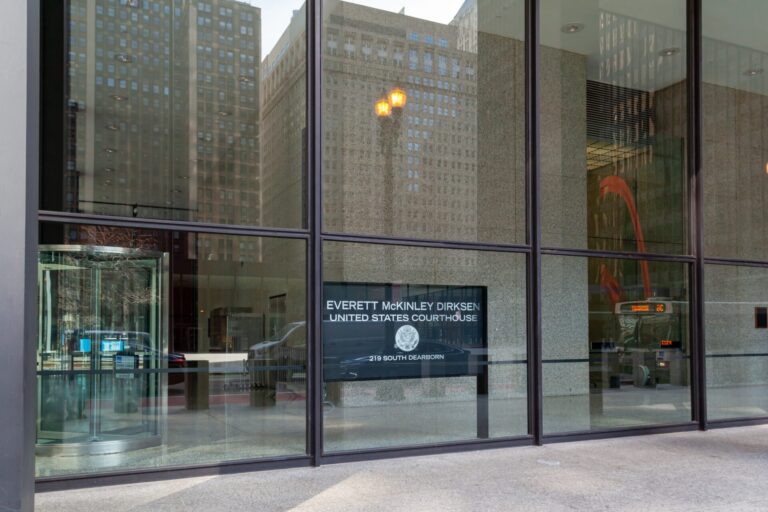Louisiana PSC awarded $17.3 Million in Customer Money to Business Partner of Commissioner Skrmetta

The Louisiana Public Service Commission awarded $17.3 million of customer money from 2017 to 2019 to Jason Hewitt, the personal filmmaker of Commissioner Eric Skrmetta, to develop energy efficiency projects for local governments, most of which were not projected to cost-effectively save energy. Skrmetta and Hewitt, owner of Films in Motion, have worked together in film production since at least 2018, according to IMDB.
Brilliant Efficiencies, an energy efficiency company owned by Hewitt, was awarded 50 of the 89 total awarded projects, or 56% of all awarded projects, from 2017 through 2019 for the Public Service Commission’s (PSC) “Public Entities” program. The program awarded full grants for energy efficiency projects to local governments if the Commissioner whose district included that project selected it for approval.
Of the 50 projects awarded to Brilliant Efficiencies between 2017 and 2019, 27 failed to save enough energy to pay for themselves within 10 years. A ten-year payback period is a benchmark often used by the energy efficiency industry to determine whether a project is an effective use of customer money. Because the Public Entities program covered the full cost of the projects, recipients of the awards did not have to consider a payback period as would a regular customer insulating their home or a small business upgrading their lighting. Instead, utility ratepayers were covering the costs.
Three projects awarded to Brilliant Efficiencies had paybacks of 60 years or longer, well beyond the anticipated lifespan of any potential upgrade. One project awarded, a nearly half-million dollar lighting and HVAC project for Grambling State University, was estimated to have a 114-year payback period.
The Energy and Policy Institute obtained information about the Public Entities program and the projects awarded to Brilliant Efficiencies via public records requests of the PSC.
Skrmetta, who is currently running for re-election, has campaigned on some of the projects completed as a part of the Public Entities program, such as the Northshore Technical Community College project completed by Brilliant Efficiencies.
“I am proud of the projects I have done across my district to help local governments,” Skrmetta posted on October 15. “Upgrading things like lighting to a more energy efficient product makes sense all around. Ask what I have done in your parish.”
The money that pays for the energy efficiency projects in the Public Entities program is almost entirely derived from residential and small business utility customers, who fund the program via their monthly utility bills.
Another commissioner, Foster Campbell, told the Energy and Policy Institute that he “had no knowledge of Commissioner Skrmetta doing any sort of business with Jason Hewitt.”
Campbell said that he had suspected Brilliant Efficiencies prices were inflated based on its very high project costs, however, and as a result, he began requiring all Public Entities projects from his district to be competitively bid in mid-2019. Campbell said that after he awarded Brilliant Efficiencies two initial projects in 2018, he required the subsequent 16 projects submitted by Brilliant Efficiencies to be competitively bid and found “the average savings […] was 54 percent.”
“One project proposed by [Brilliant Efficiencies] was 80 percent higher than the eventual low bidder,” Campbell told EPI. “All 16 projects were accomplished or are in progress using alternative contractors, and not Brilliant Efficiencies.”
Another commissioner, Craig Greene, said he also was not aware that Hewitt was producing films for Commissioner Skrmetta at the time of any energy efficiency projects Brilliant Efficiencies did for his district, and added that, “such is not prohibited by the Commission.”
Neither Commissioner Skrmetta nor Brilliant Efficiencies’ Hewitt responded to a request for comment. Commissioners Lambert Boissiere III and Mike Francis also did not respond to a request for comment.
Hewitt won energy efficiency contracts from PSC, produces films for Skrmetta
Hewitt’s Brilliant Efficiencies was awarded the majority of projects by the PSC’s Public Entities program from 2017 to 2019. The company was awarded 50 projects over a three-year period totaling $17.3 million. Sixteen of those 50 projects, representing $6.1 million, were located in Skrmetta’s district, and would have been approved by Skrmetta, according to program guidelines.
In 2017, Brilliant Efficiencies accounted for 90% of the applications for funding and 90% of the awarded projects. In 2018, the company accounted for 46% of the applications for funding and 49% of the total awarded projects. In 2019, the numbers climbed again; the company accounted for 60% of the applications for funding and 56% of the total awarded projects.
Details about the Public Entities program from two May 2017 filings show how the program gave little time for energy efficiency contractors to apply for grants, which may offer a hint as to how Hewitt’s company accounted for 90% of the project applications and awards that year. The program guidelines were first published on May 15, and they simultaneously established a deadline for applications to the PSC of that same day, May 15. The PSC claimed in a May 24 filing that it had made a mistake in setting the original May 15 deadline, and updated the project application deadline to June 15. Still, that left only three weeks and a day for project bids to be submitted to the Commission for consideration.
Compared to other energy efficiency contractors, Hewitt may have had a leg up in bidding on and winning projects: his separate business relationship with Skrmetta.
Hewitt has owned Films in Motion since 2005 and his company is producing three projects for Skrmetta – Devil’s Brigade, Snow Unicorn, and Pinkapotamus, which appears to be an animated TV series – according to the film database IMDB. Snow Unicorn was listed as in “pre-production” in March of 2018, with Skrmetta listed as the writer of the film. Hewitt has more than three pages of companies listed under his name, most of which are related to the film industry, according to records maintained by the Louisiana Secretary of State.
Pinkapotamus lists Skrmetta and Hewitt as executive producers.
A LinkedIn profile for Hewitt lists both Films in Motion and Brilliant Efficiencies.

History of the Public Entities program
In December of 2016, just four days before Christmas, the Louisiana PSC passed “Item 25” on its agenda, which put an energy efficiency measure up for vote at the next monthly meeting. The following month, in January 2017, the Commission took up the energy efficiency item, with a key addition: it simultaneously allocated “no less than fifty percent” of the regular energy efficiency program budget toward “school districts, local governments, state agencies, and higher education institutions or any other public entity.” The Commission’s vote removed oversight and administration by the third-party energy efficiency program administrator, and instead directed public entity proposals to be submitted and approved directly by the Commission.
That change gave Commissioners new power to control a significant pot of utility customers’ money toward efficiency projects that could be politically advantageous to them, by allowing them to direct the spending toward school districts, universities, or town agencies. It also gave them a freer hand to direct customer money toward projects that might not save any energy.
Skrmetta asked Commission Secretary Frey to read in the motion creating the Public Entities program on behalf of Commissioner Boissiere, according to a transcript of the hearing. Skrmetta then seconded the motion, and it passed unanimously.
In April 2017, the Commission issued its order officially creating the Public Entities program originally approved in January. The April order allowed utilities to charge customers for “lost revenue” it incurred from any energy savings realized by the energy efficiency projects. The order also allowed many industrial customers to opt out from contributing to any of the costs of the energy efficiency programs.
The Commission’s April order meant that residential and small commercial customers would be forced to reimburse utilities for the value of any energy saved by customers who participated in energy efficiency programs. Utilities would be paid regardless of if they sold energy or not. Industrial customers later told the Commission that at least 83 Entergy Louisiana customers opted out of funding the energy efficiency programs, according to a June 2019 filing by the Louisiana Energy Users Group.
Each Public Entities project was to be evaluated by a “project team” and forwarded on to the respective Commissioner depending on the location of the project. Commissioners themselves, however, were responsible for making the final determination to award customer money for projects in the Public Entities program.
The Public Entities program as originally approved took half of the money out of the PSC’s broader energy efficiency budget. In December of 2017, the PSC made a change to restore the original full funding to the broader energy efficiency program, instead allocating additional money – .5% of annual sales for each utility that it regulates – toward the Public Entities program.
PSC Staff recommended discontinuing the Public Entities program in a November 2019 meeting. Skrmetta nonetheless made a motion to continue the program. Commissioner Boissiere complained that he had just received the details of Skrmetta’s motion the day of the vote when the Commission “used to have a courtesy where the documents like this would be circulated several days in advance.” Campbell said he didn’t “like what I’m seeing” from the Public Entities program, according to a transcript of the meeting.
Public Entities program fails to deliver meaningful savings, lacks measurement and verification
Projects completed in the Public Entities program were largely exempt from measurement and verification procedures typically used to substantiate energy and cost savings of energy efficiency programs. Many of the projects awarded to Brilliant Efficiencies had poor paybacks compared to other contractors who were awarded projects in the Public Entities program in later years, according to a review of public records by the Energy and Policy Institute.
Adrie de Waal, Executive Assistant for Commissioner Skrmetta, conducted at least some of the inspections for projects conducted in District 1. De Waal’s LinkedIn profile also listed her as the General Manager of New Orleans Distillers, a company owned by Skrmetta that advertised with the Hayride, a political blog that has endorsed Skrmetta for re-election. One of the inspections conducted by de Waal included the installation of a 250-ton cooling tower for the Pontchartrain Center, despite de Waal’s apparent lack of experience in energy auditing or retrofitting. A search for de Waal among professional engineers licensed to do business in Louisiana turned up no results. The Pontchartrain Center installation cost Entergy Louisiana customers more than $300,000 with an estimated payback of longer than 24 years.
De Waal did not respond to a request for comment about her qualifications to audit energy efficiency projects.
Over half of Brilliant Efficiencies’ projects did not pay for themselves in less than ten years. Another contractor, M&M Contractors, was awarded six projects in 2019, all of which were estimated to pay for themselves in energy savings in less than ten years; four of the six were estimated to pay for themselves in fewer than five years.
M&M Contractors’ energy efficiency projects highlight the opportunity cost of forcing customers to pay for uneconomic projects; more projects completed with poor paybacks leaves less funding available for projects that could demonstrate a reasonable payback. Effective energy efficiency programs generally save all ratepayers money, by reducing overall energy demand and reducing the need for utilities to build more power plants, transmission lines, and other infrastructure.The American Council for an Energy Efficient Economy ranked Louisiana 48th in its 2019 State Energy Efficiency Scorecard.
In 2017, the first year of the program, Brilliant Efficiencies won nine of the ten awarded projects. Five of the company’s nine awarded projects did not pay back in ten years or less. The only non-Brilliant Efficiencies project approved that year was estimated to pay for itself in just six months.
Attempt to require competitive bidding on Public Entities projects rejected by Commission
Skrmetta made a motion in November 2019 allowing commissioners to hire outside technical experts to help evaluate and inspect future projects completed under the Public Entities program. Campbell, joined by Commissioner Boissiere III, attempted to strengthen the requirements on the Public Entities program by requiring all projects to be competitively bid, but their motion failed. In a plea to his fellow Commissioners to support his competitive bidding motion, Campbell said, “I’ve been in politics a long time, and you never go wrong putting out things for a public bid when it has to do with public money. This money belongs to the people. That’s who it belongs to. And nobody should be scared of a public bid.”
Commissioners Francis and Greene joined Skrmetta to approve allowing Commissioners to hire outside technical experts, and in opposing Campbell’s attempt to require competitive bids on the projects. Greene claimed that he would require bids on the projects in his district but would not vote to require bids for the projects in all districts.
PSC spokesperson Colby Cook told EPI that the PSC has not hired an engineering firm as authorized in November 2019.
Header image source: YouTube



